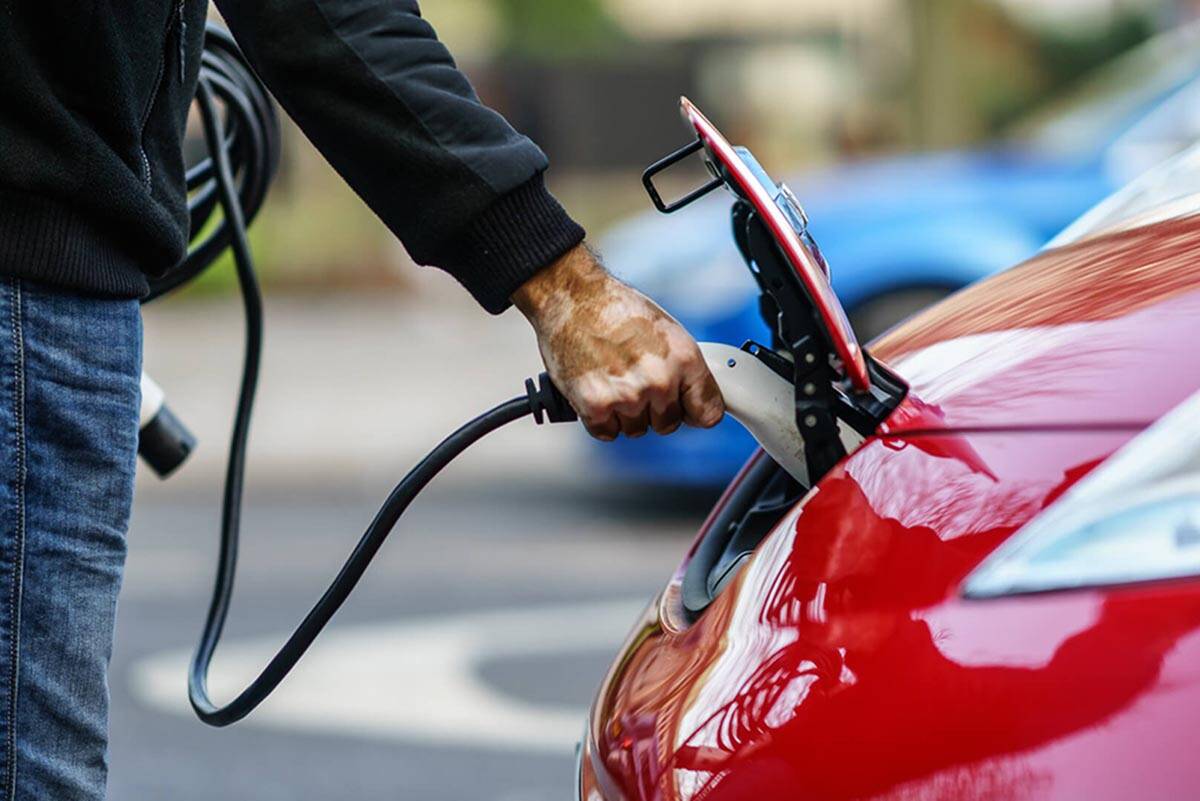RICH LOWRY: Yes, Harris wants you out of your gas-powered car
Kamala Harris is an automotive libertarian, or so she maintains.
“Contrary to what my opponent is suggesting, I will never tell you what kind of car you have to drive,” the vice president said at a campaign stop in Michigan. She will, however, favor regulations to drastically change the mix of gas-powered and electric cars that are manufactured in the United States, regardless of what consumers want.
The Biden-Harris administration has been working to regulate the American car market more to its liking. In 2023, the EPA proposed rules to make electric vehicles as much as 67 percent of new light vehicles sold by 2032. The agency then backed off a little, to electric vehicles constituting 56 percent of such cars in 2032 (another 13 percent would be hybrids, leaving purely gas-powered cars at less than 30 percent). Why we allow a government agency, on its own say-so, to mandate the share of electric vehicles down to the percentage point years from now is a story for another day.
The mechanism that the EPA is using to impose its will is emission limits on carmakers; the limits can be calibrated to ensure that companies squeeze out gas cars to reach the goals.
To be clear, none of this is voluntary. Carmakers that don’t comply will face penalties. The preferences of the companies or the consumers aren’t driving the change — government edict is. The Biden-Harris administration is indeed telling you that your choice in cars is going to be artificially constrained.
The Harris policy is the equivalent of saying you might want a white, gray or black car (currently accounting for about two-thirds of cars), but in a few years, more than half of all cars are going to be green or red (together less than 10 percent of the market).
Electric vehicles are a little under 10 percent of sales now, so going to more than half over the next seven years is almost surely unachievable. Soviet five-year plans were less ambitious. This is another issue where the Kamala Harris of a few years ago is completely at odds with the moderate Kamala Harris newly minted for the 2024 campaign. As a headline in the Sacramento Bee put it in 2019, “Ending sales of new gas-powered cars is part of Kamala Harris’ climate change plan.”
A bill sponsored by Oregon Sen. Jeff Merkley and co-sponsored by Harris when she was a senator would have mandated that so-called zero-emissions vehicles constitute 100 percent of new passenger vehicles by 2040. In her short-lived 2020 presidential campaign, Harris issued a climate plan proposing “an accelerated model” to phase out gas-powered cars by 2035.
In light of her past proposals, Harris should have said in Michigan, “I will never again tell you what kind of car you have to drive.”
As with so many of Harris’ reversals, a once seemingly deep-held policy conviction has been cast aside without explanation. There are good reasons that people prefer gas-powered cars, from convenience to reliability to cost. It may be that, over time, they come to embrace electric cars at the level the Biden-Harris administration deems appropriate, but that should be for the market to decide free of government impositions.
Instead, the EPA is hoping to get people out of what the Biden-Harris administration considers their retrograde gas-powered cars. Harris has a funny way of honoring automotive choice.
Rich Lowry is on Twitter @RichLowry.




















